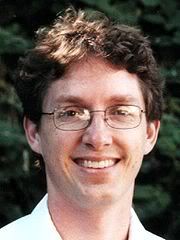
the Man from C.A.R.R.I.E.R
We know Christmas is coming becuase the atheist bus signs are out. We have been seeing stories about them on the news every night. This points up a fact that I have noticed. Atheists work so hard to avoid being thought of as an organized movement. Anyone aware of their record and can see a vast organization at work.
Central Atheist Research and Rhetoric
Institute for the Eradication of Religion.
Atheists are always harping about how they don't have a movement, its just the absence of a belief, they are all different. They will spend days and weeks vehemently declaring that there is no organization and not movement and they are all different, they have no agenda, no ideology. They have such an effective propaganda machine that they have pulled off a highly effective snow job in spreading this garbage. Of course it's all a huge lie. Of course now they are going to play the conspiracy buff card. If I think they are pulling the wool over our eye then I must think they are Thrush on the Man form UNCLE. They all have secret meetings under shopping centers and they are in contract with Aliens and tea party people. What I'm saying doesn't have to be even slightly in that direction to be real and obvious and a proble. We all know what a political machine is.
We don't have to be saying that they have a secret conspiracy to say that they have a political machine. When we see how far flung and fictive their organizing is, when understand how their brain washing works to socialize adherents over the internet we can see there is obvious problem. What's even more obvious when we look at the atheist movement in all its organized ferocity it becomes very plain that they are lying when they say there's no movement, nor organization and that it's not an ideology. I'm demonstrated the ideology. I've shown the psychological motive. I'm demonstrated that it's moving in like with the FBI profile of a hate group. There's a continuum from a mild organization aimed at getting people interested to an extreme fringe of hate group mentality. Not all all atheists are in the hate group end of it. The hate group end is not a plot it's not connected to the valid organizations but it's there and it's growing. When we see the obvious nature of a political machine then it should be clear the line about not being organized is bunk. Therefore, when we see them all thinking the same way and saying the same thing sit should be clear there's an ideology.
When we observe their success and we see the organizations working toward their goals it's pretty organized they are organized. How could they not be organized and this this plethora of success and groups behind the success:
Freedom From Religion Foundation:
- Won the first federal lawsuit challenging direct funding by the government of a faith-based agency
- Overturned a state Good Friday holiday
- Won a lawsuit barring direct taxpayer subsidy of religious schools
- Removed Ten Commandments monuments from public lands
- Ended bible instruction in public schools after 51 year practice
- Halted prayer at public institutions
- Stopped direct subsidy to religious schools
- Ended commencement prayers at a Top Ten University after 122 years of practice
- Ended distribution of Gideon bibles in public schools.
- Brought nearly 30 First Amendment lawsuits since 1977, and keeps several Establishment law challenges in the courts at all times.
- Files lawsuits!
- Publishes Freethought Today
- Sponsors annual high school and college atheist based essay competitions with cash awards
- Conducts, annual national conventions, honoring the "Freethinker of the Year" for state/church activism, a "Freethought Heroine" and student activists
- Bestows "The Emperor Has No Clothes" Award to public figures for their criticism of religion
- Promotes freedom from religion with educational products, bumperstickers, music CDs, winter solstice greeting cards and literature
- Publishes useful atheist books
- Provides speakers for events and debates
- Established a freethought book collection at the University of Wisconsin Memorial Library as well as a 2,000-volume office collection
- Prayers Stopped at Public Institutions
- Public Sponsorship of Nativity Pageant Halted
- Crosses Downed from Public Land
- Abuse by Preacher Exposed
- City Sponsorship of Knights of Columbus Signs Ended
- Ethics Probe Called for Preaching Governor
- Proselytizing Crossing Guard Fired
- Post Office/Catholic Entanglement Ended
- De Facto Sports Chaplaincy Stopped
- School Boy Scout Subsidy Stopped
- Bible Proclamation Rescinded
- Illegal Public Help Halted for "Our Lady of the Rockies"
- Creationism Removed from City Zoo
- Discount for Catholics Ended
- Red Rocks Easter Service Subsidy Ended
- Nativity Scene Moved Off Government Land
- Ten Commandments Monuments Moved from Public Property
- Religion Removed at Playground
Phony Scholarship Machine
They also have a propaganda net work that cranks out phony scholarship. Let's look at the work of Richard Carrier long time Secular Web member and history student. Carrier appears to be an academic who just shares an interest in certain issues and just happens to be an atheist. When we dig more deeply into some of the organizations he's involved with it looks like more to it than that.
Richard Carrier has a couple of articles on his blog about a big conference for the Jesus Project
held at Amherst last December. O it sounds very scholarly. It presents the image of a group of major scholars meeting to mull over the lattes scientific findings that proving that Jesus never existed. This creates the idea that there is a climiate of opinion in the acadmeic world to expose the lies about Jesus as fiction and show that he never existed. But if you follow the trail to see where his lie originated, and the trail is clearly marked, one can see clearly that there's nothing scholarly about it. It's nothing more than a put up job, but it's no accident that the Jesus Myth stupidity though expossed time after time as bancrupt lives on and continues to draw in a group suckers who are hood winked into believing that they are on the cutting edge of scientific search for truth.
The tail begins with the first major clue, the website of an organization called "The Jesus Project." Carrier links to this site on his blog: http://richardcarrier.blogspot.com/2008/12/jesus-project.html. The site preports to be focual point for cutting edge academic research which suppossedly takes up where the Jesus Seminar left off:
The Jesus Seminar, founded in 1985 by the late Robert Funk of the University of Montana, was famous for all the wrong reasons—its voting method (marbles), the grandstanding of some of its members, the public style of its meetings, even its openly defiant stance against the claims of miracles in the Gospels—including the resurrection of Jesus. Except for the marbles, none of this was new. The use of additional sources, such as Gnostic and apocryphal gospels, to create a fuller picture of the Jesus-tradition and the focus on context as though it provided content were at least innovative. But the Jesus who emerged from these scholarly travails was so diminished that—as I wrote in a FREE INQUIRY article in 1993—he could not exist apart from his makers: “The Jesus of the [Jesus Seminar] is a talking doll with a questionable repertoire of thirty-one sayings. Pull a string and he blesses the poor.”
What the Seminar had tacitly acknowledged without acknowledging the corollary is that over 80 percent of “Jesus” had been fictionalized by the Gospel writers. That is to say that, if we are to judge a man’s life by his sayings, the greater portion of the literary artifacts known as the Gospels is fictional. If we are to judge by actions, then what actions survived historical criticism? Not the virgin birth, or the Transfiguration, or the healing of the sick, or the purely magical feats such as Cana, or the multiplication of loaves and fishes. The Resurrection had quietly been sent to the attic by theologians in the nineteenth century. The deeds—except, perhaps, the attack on the Temple (Mark 11:15–19)—had preceded the words to the dustbin years before, yet scholars insisted the historical figure was untouched. Only faith could explain this invulnerability to harm.......
Of course buying into this assumes that the Jesus seminar did it's work well, which almost no scholars outside of the Jesus seminar agree with. The Jesus Porject, of course, aims to do better. They are off to a smashing start wtih the selection of a highly original name. But find some telling things in the recounting of their mission:
....On a pleasant day in January 2007, at the University of California, Davis, the Committee for the Scientific Examination of Religion (CSER) asked the question that had been looking for a serious answer for over a hundred years: Did Jesus exist? The CSER fellows, invited guests, present and former members of the Jesus Seminar, and a wide variety of interested and engaged attendees applauded roundly after three days of lectures and discussions on the subject—appropriately—“Scripture and Skepticism.” The Jesus Project, as CSER has named the new effort, is the first methodologically agnostic approach to the question of Jesus’ historical existence. But we are not neutral, let alone willfully ambiguous, about the objectives of the project itself. We believe in assessing the quality of the evidence available for looking at this question before seeing what the evidence has to tell us. We do not believe the task is to produce a “plausible” portrait of Jesus prior to considering the motives and goals of the Gospel writers in telling his story. We think the history and culture of the times provide many significant clues about the character of figures similar to Jesus. We believe the mixing of theological motives and historical inquiry is impermissible. We regard previous attempts to rule the question out of court as vestiges of a time when the Church controlled the boundaries of permissible inquiry into its sacred books. More directly, we regard the question of the historical Jesus as a testable hypothesis, and we are committed to no prior conclusions about the outcome of our inquiry. This is a statement of our principles, and we intend to stick to them.
This sounds like a fair and scholary statment. But consider the words in blue. What that really says is "we support the Jesus myth theory." What tells me that, aside from everything coming out of their work that is (see Carrier's blog linked above). That they aim not to understand the Gospel writers as thoguh that would be some kind fo big error. Secondly, the line about "figures similar to Jesus," in other words, they are going to try to argue that they prove the dying/rising savior God bit. Mixing theology and history is inexcusable, but of course doing history as a cover for destruction of a religious belief they despize is fine and dandy. They are not biased they just have the answers before they ask the questions.
All of this is trivial, I'm getting to the point...
At the end of its lease, the Jesus Project will publish its findings. Those findings will not be construed as sensational or alarming; like all good history, the project is aiming at a probable reconstruction of the events that explain the beginning of Christianity—a man named Jesus from the province of Galilee whose life served as the basis for the beginning of a movement, or a sequence of events that led to the Jesus story being propagated throughout the Mediterranean. We find both conclusions worthy of contemplation, but as we live in the real world—of real causes and outcomes—only one can be true. Our aim, like Pilate’s (John 18:38), is to find the truth.
Who wants to bet his house against my assumption they they will find that Jesus didn't exist and that the Bible is totally wrong? Anyone willing to bet his house on that? Of course to be what they call "probable" they would have to conclude that the bible is a lie and Jesus never existed, because they are totally to religion and ideas connected with religion. One hint that this may be the case is who is publishing the results of the seminar:
In general the conference revealed some cutting edge stuff in the works. Later this year or the next, Prometheus Books will publish the conference papers (or rather, improved and lengthened versions of them, e.g. my chapter in that book will be rather different from my actual talk, which was largely off-the-cuff, but most of the content will be the same)Prometheus books only does atheist books.
But none of this is the point. That just sets up a clear look at their true motives. They are not the least bit interested in scholarship. But what's really interesting is what it says at the top of the page on "introduction:" Jesus Project, "a product of Committee for the Scientific Examination of Religion"
So now Jesus Project is a project of this Committee. Who are these committee people? what is this organization? Trying to answer that question led me to another website:CSER "center for Inquiry"
Here's what they say about themselves:
The Committee for the Scientific Examination of Religion (CSER) is a research division of the Center for Inquiry. Since its 1983 founding in Washington, DC, the Committee has worked to encourage humanistic, critical and non-parochial approaches to the study of religious traditions and institutions and to develop programs that promote the public understanding of religion in an international context.The Jesus Project i not the world of scholars who organized their project as a group of truth seeking academics doing scholarly research, they were recruited by an organiztion whose praimry purpose and goal is to destroy christianity. Their statement above says they just to contribute to understanding of religion. But to understand it in what way? We already see they are not satisfied with the 2000 years of scholarship on Jesus becasue they consider that dominated by the chruch. Does that mean their "schoalrship" will be free and unecumbared? yet they recruted as the special as the special project of this organization, does that seem real open and fair. Let's look further and see who else is inoloved in this group.
CSER is an international research and educational consultation comprised of members (appointed fellows) who are nominated by an executive board. The current chair of CSER is Dr. R. Joseph Hoffmann, who succeeded Dr. Gerald Larue in January 2004.
The Head quarters of the group is in Amherst where the conference was held. So the conference is not related to the university, just held in the town. The same town where the organization that sponsors the project is.
P.O. Box 741
Amherst, NY 14226
This is under the tab on the website marked "advocacy." A group that does advocacy is not a scholarly group. They are not interested in truth, they are interested in selling their idea of the way things are, they want to dominate thinking. This is why they put up a big web of deception to create an imporession of impartical scholarship and truth seeking when in reality what they have is a put up job the purpsoe of which is to destory bellief. How do I know this, because look at the other wings of their organization. First of all this is their mission:
The Center for Inquiry is an active agent for social and cultural change in the courts, in the U.S. capital, at the United Nations, and at the grassroots level. Its advocacy work centers on three broad areas.
In other words they are out to destroy faith and the concept of miracles. That means they are not going to allow scholars in the Jesus project who have any sort of religious belief. Its' going to be totally duobting, atheistic unbelieving and out to disprove any notion that gives religion even a slight benifit of the facts. Another wing of their group is dealing mental and medical health. Now does that include findings that religious belief is mental illness?Fringe science and extraordinary claims
Through its Committee for Skeptical Inquiry (CSI), Skeptical Inquirer magazine, and other initiatives, CFI advocates responsible, evidence-based treatment of extraordinary claims and fringe science, such as psychic phenomena, intelligent design creationism, and conspiracy theories. Council for Media Integrity presses for fair representation of naturalistic outlook in mass media.
They are so concerned about the right to blaspheme, do they give a damn about the vast majority of humanity that thinks they are nuts and believes in God? This is just a nother look gorup of tin pot dictators who are convienced they they are special and they need to lead the ignorant masses, like Stalin, Like Hitler, like Pol Pot. One example of their work is this:Medical and mental health
In age of alternative and complimentary medicine and New Age therapies, CFI advocates evidence-based medicine and mental health through its Commission for Scientific Medicine and Mental Health Practice (CSMMH), publisher of the Scientific Review of Alternative Medicine and the Scientific Review of Mental Health Practice, as well as in Skeptical Inquirer and its “Healthy Skeptic” online column.
Do New Agers typically push mental health alternatives? We know form the past that KGB played with the idea of mental health. Dissenters in the USSR were seen as mentally ill. Will these people allow alternative views of medicine and mental health? Are they trying to frame administrative medical people as mentally ill?
The organization is totally committed to a world without religion and a world in which religion is no longer vital force of any kind:Religion, ethics and society
CFI is a leader in the struggle for a more rational, secular world. CFI’s Council for Secular Humanism (CSH) and Free Inquiry magazine promotes secular perspectives on contemporary issues; African Americans for Humanism assists humanist groups in America and Africa; the Committee for the Scientific Examination of Religion stimulates critical scholarship; and the Institute of the Secularization of Islamic Society stands up for the right to apostacy and blasphemy and the separation of mosque and state.
Amicus Brief Submitted in Americans United for Separation of Church and State v. Prison Fellowship Ministries (U. S. Court of Appeals for the Eighth Circuit)So even though the most remarkable success in American history for prision rehab has been religious conversion (Quaker ran jails of the nineteenth century) they want to disallow it because it's somehow violating them even though they are not in prsion and it does not effect them. But they can't stand the idea that others are being saved and led to God. Now would they force a voluntary program to shut? Are people beign forced into prision ministry? I don't think so.
Question Presented: Whether a state-funded program that seeks to rehabilitate inmates through religious conversion violates the Establishment Clause and whether the organization that operates the program can be required to return to the state the funds that it has received.
Here's therir example of safe guarding religious liberty:
Safeguarding Religious Liberty in Charitable Choice and Faith-Based Initiatives
The Obama administration recently announced an expansion of government funding for so-called "faith-based initiatives," in which taxpayer dollars are doled out to sectarian religious organizations for the performance of social service programs. This government funding raises legal and constitutional concerns that the administration has yet to address directly. In February, the Center for Inquiry produced a position paper that called for an end to government funding of faith-based programs. Because government funding is scheduled to continue, the Center for Inquiry further recommended the adoption and vigorous enforcement of specific minimum safeguards to protect church-state separation and religious liberty.
CFI performed a detailed historical study of federal funding for faith-based programs, extending from the rise of "charitable choice" legislation during the Clinton administration through the explosion of taxpayer funding for religious programs under George W. Bush's Faith Based and Community Initiative. The position paper that resulted from this study expresses deep misgivings about government funding of sectarian religious programs. CFI cited concerns that these programs may use taxpayer dollars to support or favor religious activities and beliefs; that government may give preference to particular religious organizations in doling out funds; and that under current standards, recipients of taxpayer funding for faith-based programs are allowed to engage in employment discrimination on the basis of religion.
CFI's position paper recommends that government funding of faith-based programs be eliminated entirely. CFI's paper endorses a limited exception for truly secular social services programs, such as Catholic Charities, that have some affiliation with a religious institution but are provided by independent 501(c)(3) charities. CFI maintains that such charities must conduct social service programs without religious content or materials and without engaging in religious discrimination. (Catholic Charities is a non-profit corporation separate and distinct from the Catholic Church.)
Their example of safeguarding religious liberty is to close it down because it's somehow hurting them that religious groups are allowed to help people.
O but let's back up and look at the frienge scinece bit. The organization that put up the Jesus Porject also sponsers Skeptical Inquirer magazine, as their special mission of "advocacy." It's clear what they are advocating is the destruction of Christianity. This means the secular web and all the major force of internet atheists are just their little army of brown shirts running around persecuting Christians.
Its' the crystal night.
I'm sure I'm being alarmist. I'm just building a conspiracy theory out of think air. Do you really foresee the Jesus project not coming out with findings about Jesus not existing and the Bible being untrue? They will hood wink people into thinking that this is a scholarly mission and that it's fair and honest scholarship when the results are pre determined because it's professional wrestling. This is the work of real scholarship like Firts Von Erich was really an athelete and not an entertainier.
Look at it honestly, the Jesus Project is sponsorded the same organization that runs the Skeptical Inquirer magazine



